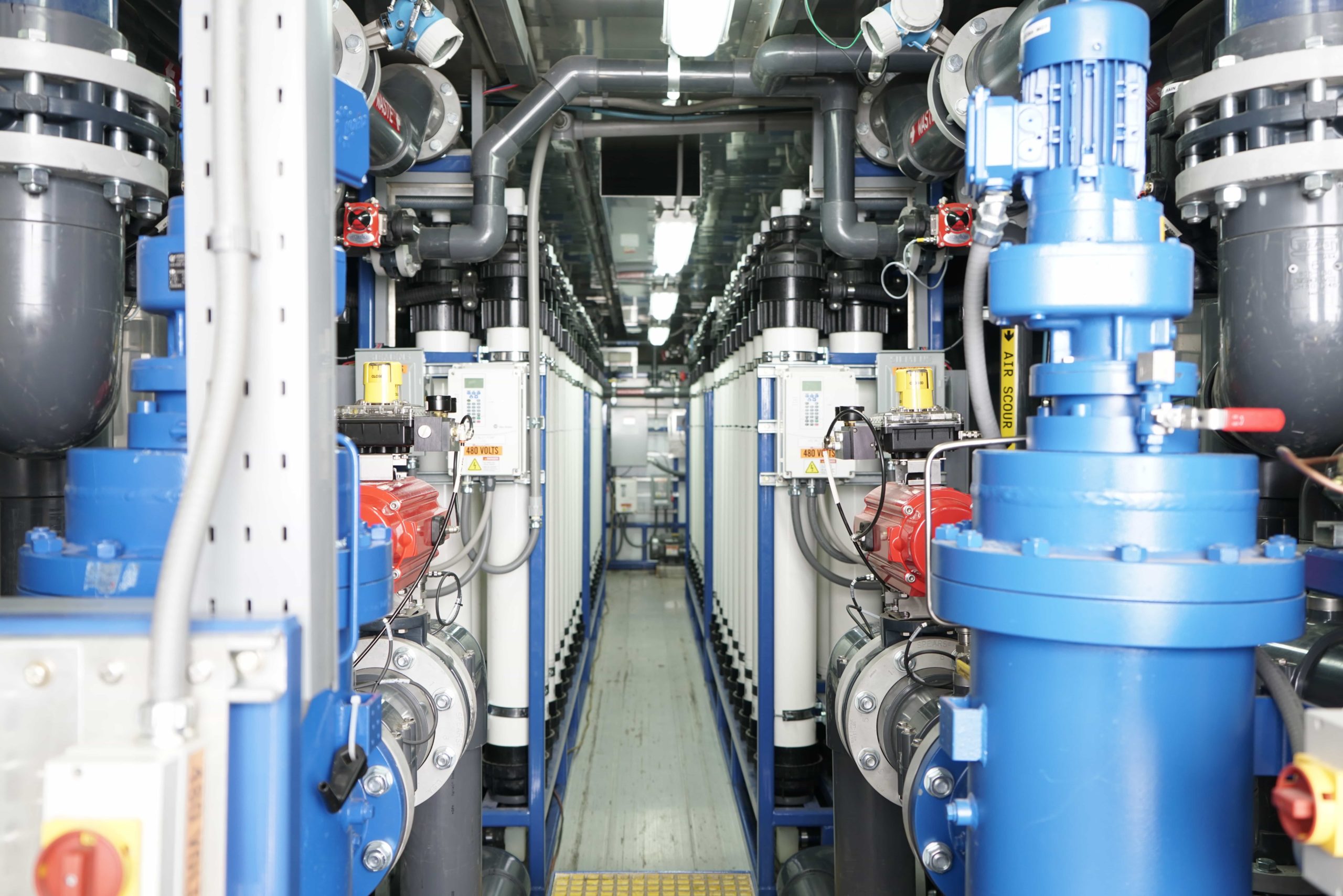The wastewater treatment systems at many of the nation’s electric power-generation plants are struggling to meet discharge requirements because they are still using technologies installed during the industry’s building boom of the 1970s and early 80s.
As a result, a number of power producers are now replacing their existing systems to reap the benefits of ultrafiltration (UF) technology introduced in the past 10 years, including significant reductions in energy and labor costs. Making the switch to UF, however, can be a challenge for base-load power plants, which are expected to operate 24/7.
Simply shutting off existing technologies while new systems are built and installed isn’t a viable solution. Discharge water that continually fails to meet requirements can have a harmful and lasting impact on aquatic ecosystems. Moreover, the daily fines for failing to comply with permit requirements can become costly because construction of new wastewater facilities can take six months or longer. The challenge was to keep the power plant, with a generation capacity of more than 1,000 megawatts, in operation while providing an effective and cost-efficient temporary wastewater treatment system as the new one was installed.
A Mobile Solution
MPW Industrial Services was awarded a contract to provide a mobile system that can treat up to 1 million gallons of wastewater per day during an eight-month outage of the plant’s existing treatment system. A mobile UF system can be delivered in as little as two to four days under emergency circumstances. This system, however, required nearly four months to design and build and two weeks to install because of the power plant’s demanding requirements, including a neutralization process that placed a premium on the efficient use of space. The feed water comes from three disparate sources. The first is a basin that collects runoff water from the plant’s coal piles, which can experience significant swings in turbidity (from 20 to 1,000 NTU), especially during periods of heavy rain. The second basin contains water from metals cleaning processes, including condensate from the washing of air handlers and the backwash of membranes in the mobile UF trailer. The third basin contains runoff water from the plant’s other surfaces.
To treat wastewater from all sources, MPW is providing one trailer-mounted unit and one container unit. The trailer contains UF technology, which is capable of removing total suspended solids, organics, iron, manganese, and other contaminants. The system consists of two independent racks, each capable of processing 400 gallons per minute. Redundant racks enable one to be cleaned while the other processes wastewater. The “outside-in” hollow-fiber membranes in the UF trailer are capable of rejecting particles as small as 0.02 micron. The trailer also contains automated chemical feed systems for dechlorination, prefiltration, scale inhibiting, and pH control.
The container unit, meanwhile, neutralizes the water and controls the entire wastewater process, which is conducted on a batch basis 24 hours per day with one MPW worker per shift. Four totes with double containment, pipes, pumps, computers, and a lab all fit in a container box measuring just 53 feet by 8.5 feet. In accordance with state permits, treated water must meet turbidity and pH requirements before being discharged. Average turbidity cannot exceed 100 NTU on a daily basis and 30 NTU on a monthly basis. The pH must be between 6 and 9. To meet compliance requirements, turbidity and pH are measured online during processing. In addition, composite samples are collected on a 24-hour basis and analyzed at an independent laboratory.
A custom-built and installed network enables workers in the power plant’s control room to monitor the wastewater system remotely. Information technology experts from MPW worked on site with their counterparts at the power plant so the signals from the computer program that controls the wastewater system could be sent via a wireless transmitter to the system that controls the plant’s other operations. As a result, workers in the control room nearly a quarter mile away can monitor the wastewater system’s operations on a real-time, seamless basis. The only manual operations consist of a power plant worker controlling the pumps that determine which basin feeds the UF trailer and an MPW worker whoactivates the treatment system accordingly.
Results
The power plant has experienced no downtime or reduction in generation capacity as a result of the temporary wastewater system, even though turbidity has periodically exceeded forecasts by as much as 10 times. Most of all, the temporary system met the annual spike in volumes stemming from a combination of spring snow melts and torrential rain storms.
About MPW Industrial Services: The Industrial About MPW Industrial Services: The Industrial Water division of MPW builds, installs and operates temporary and permanent purification systems throughout North America. Services include: media filtration, ultrafiltration, reverse
osmosis, mobile demineralization, water softening, degasification, and service demineralization. Other MPW divisions are: Industrial Cleaning, Facility Management, Container Management, and Environmental Management.
